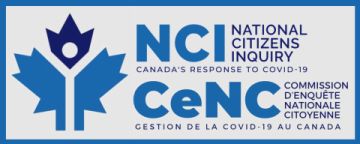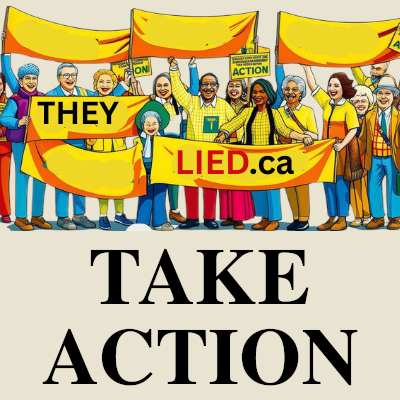Know Your Legal Rights
"When men are pure,
laws are useless;
when men are corrupt,
laws are broken."
~ Benjamin Disraeli
laws are useless;
when men are corrupt,
laws are broken."
~ Benjamin Disraeli
"Mistakes can be corrected by those who pay attention to facts but dogmatism will not be corrected by those who are wedded to a vision."
~ Thomas Sowell
~ Thomas Sowell
Learn why the Canadian Bill of Rights protects our God given rights and freedoms and how the Canadian Charter of Rights and Freedoms is used to ultimately eliminate our rights - including our property rights.
"To become Canadian federal law, a bill must be approved in identical form by both houses of Parliament - the Senate and the House of Commons. All bills follow a process of debate, review and voting. After a bill is passed by both the Senate and the House of Commons, the Governor General grants Royal Assent and the bill becomes a law. The Canadian Bill of Rights received Royal Assent on August 10, 1960. The Canadian Charter of Rights and Freedoms has never received Royal Assent - Quebec refused to sign on.
Why is this distinction so important? Because, it reinforces the fact that the Charter is not law and, therefore, has no standing in our legal system. This also begs the following questions:
Why is this distinction so important? Because, it reinforces the fact that the Charter is not law and, therefore, has no standing in our legal system. This also begs the following questions:
- Why is the Charter being promoted and used in our Court system?
- Why would anyone use an "instrument", which is not a law, that almost guarantees that they will lose their case."
"I am Canadian, a free Canadian, free to speak without fear, free to worship God in my own way, free to stand for what I think right, free to oppose what I believe wrong, free to choose those who govern my country. This heritage of freedom I pledge to uphold for myself and all mankind."
~ John Diefenbaker (House of Commons Debates, 1 July 1960)
~ John Diefenbaker (House of Commons Debates, 1 July 1960)
Excerpt:
- It is hereby recognized and declared that in Canada there have existed and shall continue to exist without discrimination by reason of race, national origin, colour, religion or sex, the following human rights and fundamental freedoms, namely,
- the right of the individual to life, liberty, security of the person and enjoyment of property, and the right not to be deprived thereof except by due process of law;
- the right of the individual to equality before the law and the protection of the law;
- freedom of religion;
- freedom of speech;
- freedom of assembly and association; and
- freedom of the press.
- Every law of Canada shall, unless it is expressly declared by an Act of the Parliament of Canada that it shall operate notwithstanding the Canadian Bill of Rights, be so construed and applied as not to abrogate, abridge or infringe or to authorize the abrogation, abridgment or infringement of any of the rights or freedoms herein recognized and declared, and in particular, no law of Canada shall be construed or applied so as to
- authorize or effect the arbitrary detention, imprisonment or exile of any person;
- impose or authorize the imposition of cruel and unusual treatment or punishment;
- deprive a person who has been arrested or detained
- of the right to be informed promptly of the reason for his arrest or detention,
- of the right to retain and instruct counsel without delay, or
- of the remedy by way of habeas corpus for the determination of the validity of his detention and for his release if the detention is not lawful;
- authorize a court, tribunal, commission, board or other authority to compel a person to give evidence if he is denied counsel, protection against self crimination or other constitutional safeguards;
- deprive a person of the right to a fair hearing in accordance with the principles of fundamental justice for the determination of his rights and obligations;
- deprive a person charged with a criminal offence of the right to be presumed innocent until proved guilty according to law in a fair and public hearing by an independent and impartial tribunal, or of the right to reasonable bail without just cause; or
- deprive a person of the right to the assistance of an interpreter in any proceedings in which he is involved or in which he is a party or a witness, before a court, commission, board or other tribunal, if he does not understand or speak the language in which such proceedings are conducted.
"Canadians are rapidly learning about the pitfalls of the Charter and turning to the Bill to defend against arbitrary fines and arrests, as well as wrongful dismissal based on vaccine passport requirements. There have been thousands of Bill wins regarding Covid-19-related charges.
Rights in the Bill are protected in Common Law, so they cannot be removed by legislation.
The best thing about the Bill is that you can cite it anywhere the government, including police or private persons, are enforcing Covid-19 measures with sanctions. The Bill applies in all cases where force is used because this is federally regulated activity (Criminal Code of Canada) when they are using force. And the Bill can be cited without notice in all proceedings related to Covid-19 measures where force is used. This includes bylaw tickets, criminal charges, and Section 22 closures of churches or businesses."
Rights in the Bill are protected in Common Law, so they cannot be removed by legislation.
The best thing about the Bill is that you can cite it anywhere the government, including police or private persons, are enforcing Covid-19 measures with sanctions. The Bill applies in all cases where force is used because this is federally regulated activity (Criminal Code of Canada) when they are using force. And the Bill can be cited without notice in all proceedings related to Covid-19 measures where force is used. This includes bylaw tickets, criminal charges, and Section 22 closures of churches or businesses."
"This video features Jane Scharf in an interview discussing recent on record victories with the Canadian Bill of Rights. Jane also explains why our Jury rights are so important. A jury is made up of unbiased peers who make their decision based on facts, evidence and information. Whereas, a trial by Judge gives them the sole authority to decide if the government can override your rights using the Charter. Only the Bill of Rights protects your right to trial by Jury."
"... in conclusion, if you think the Charter is an adequate guarantor of your rights, you might be unpleasantly surprised. There is nothing more important than working to protect civil liberties."
Additional Resources
Rebecca Sheppard, Jane Scharf and Amanda Ridding discuss the illegitimacy of the Canadian Charter of Rights and Freedoms and the Proclamation of the Constitution Act, 1982 (signed by the Queen on April 17, 1982). "Contrary to popular belief, the Canadian Charter of Rights and Freedoms is not a document in and of itself. It is actually Part I of the Constitution Act, 1982 and was presented in poster format in 1985. This poster was never officially signed or proclaimed, since it is not a complete proclamation or legislative act. It is also missing the Great Seal of Canada, which must be affixed to all proclamations and certain official documents of Canada."
Documents discussed (in chronological order):
Documents discussed (in chronological order):
- THE CONSTITUTION ACTS, 1867 to 1982, 59
- THE CONSTITUTION ACTS, 1867 to 1982, 59 (1)
- What was really signed on Parliament Hill 40 years ago, on April 17, 1982?
- Endnote 110
- The Special Joint Committee on the Constitution of Canada, 1980-81, 2017 CanLIIDocs 3909 - Introduction
- The Special Joint Committee on the Constitution of Canada, 1980-81, 2017 CanLIIDocs 3909 - Part IV. 2. Property Rights (Section 7)
"By far the most serious coup administered against freedom in Canada was the seizure of control of the federal Liberal Party by Pierre Elliott Trudeau and his leftist clique in 1968. Since Trudeau seized the levers of federal power Canada has been politically, constitutionally, and now economically in turmoil and disintegration. Language problems have been exacerbated, regional issues have been aggravated and the feeling of alienation and separation has spread across this country. And, of course, in foreign policy, Trudeau has shifted us onto the side of Castro and close to the Soviet Union. Forget the possibility of 'revolution' in our country. In Canada, the revolution was!"
Magna Carta
"Any king or anyone in power was, from the minute it was signed in 1215, troubled by Magna Carta. Magna Carta was something elemental, foundational and fundamental. It had the audacity to have the king accept that he wasn't above the law. I'm certainly not an expert on the law, but, I encourage anyone who's interested in rights and freedom to contemplate Magna Carta, and to pay attention to the fact that ever since it was signed, anyone in power has sought to edit it, change it, water it down, repeal its contents. Everyone with their hands on the levers of power has been bothered by Magna Carta's existence, that's a fact. Magna Carta is, as it always was, liberty itself - freedom made manifest. And the men in suits and the judges with their wigs that sit in the high courts, they'd rather you think it doesn't matter. We, as individuals, each one of us, is sovereign, and together the people are sovereign. We hold the power. We are in control of the government. People know that something is wrong. And that comes from the natural sense of right and wrong and it empowers and enables people. If only they would trust themselves to work their way back towards the truth."
How can you spread the message that They Lied?
Stay up to date with our Newsletter
Click here to read it,
or subscribe below ...
or subscribe below ...
Click here to STOP the Globalist Agenda
Click here to support our work.
Click here to email us at contact@theylied.ca

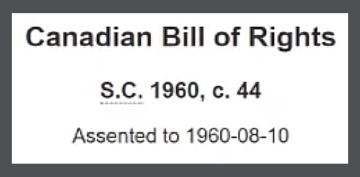 Brief video that
Brief video that
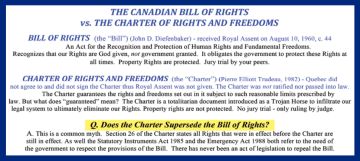
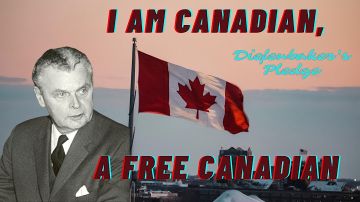 Video
Video
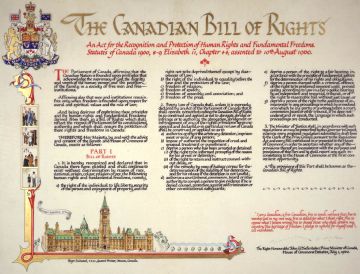
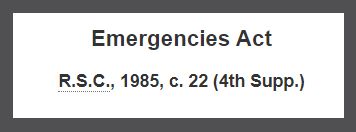 Video
Video
 Article
Article
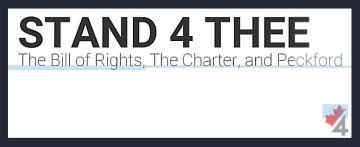
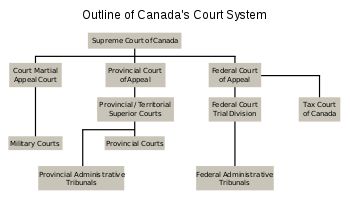 Article
Article
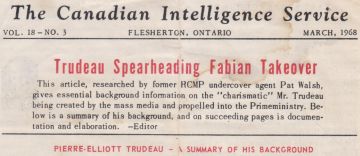
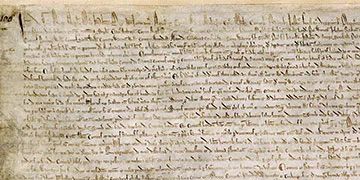 Video
Video
